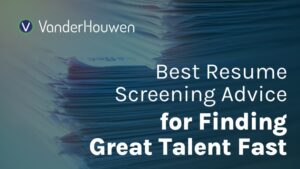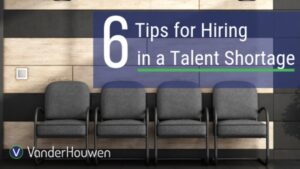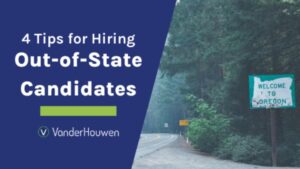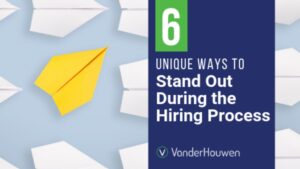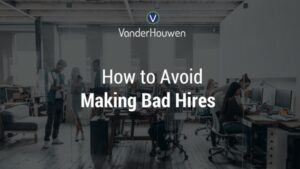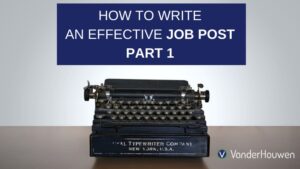A Complete Guide for Getting Hired at a Fortune 500 Company
Getting hired at a Fortune 500 company is a dream for some. Beautiful and modern office spaces, a strong culture of collaboration, the opportunity to learn new techniques and being part of innovative technology are just a few reasons people flock to large corporations. But getting hired at companies that employ 28.7 million people worldwide can be hard when you don’t know where to start. Here’s everything you need to know to get hired at a Fortune 500 company:
If your work ethic and teamwork skills shine, the company may hire you to full-time or re-sign you for another contract, depending on their hiring processes, budget, etc. It’s a great first step to getting your foot in the door! Fortune 500 companies are also aware of how long it takes to hire for a contract vs. full-time position. For full-time positions, it can take months to post the job and search through applicants to find the perfect fit, whereas contract or contract-to-hire roles tend to be found within weeks of posting. By offering temp-to-hire opportunities, the company can be more agile – especially when staffing for special projects.
Recruiters are also well-versed in what it means to interview and hire with a Fortune 500 company. They can give you an in-depth look at the hiring process and match top talent to the right opportunity. They’ll be able to guide you through any specific onboarding practices that some companies may have and get your resume in front of the hiring managers quicker. Because of this awareness, recruiters can guide you toward your dream job with as few hiccups as possible. Pro tip: When applying to Fortune 500 companies, organization is key. Write down the job numbers of any positions you’ve applied for and be sure to give them to your recruiter. Some companies won’t accept applications if they’re submitted more than once, so your vigilance will pay off! Send VanderHouwen your resume! Submit your resume for general consideration to our recruiting team.
Bonus tip: Put the most relevant experience on the first page of your resume in your work history. Skills/technical summaries are often skipped over as the managers are looking to see the what, when and how of your experience. Hiring managers are busy, so you want to grab their attention early. If they don’t like what they see on the first page, they’ll move onto the next resume in their stack. With little time to devote to reading every resume they receive, make sure your resume length isn’t too long for the hiring manager. If certain experience is over 20 years old or in a field that doesn’t apply to the position you’re aiming for, remove it. If a hiring manager wants your full work history, they’ll ask for it.
Contract-to-hire roles are common.
Larger companies focus on creating an amazing office culture to attract top talent. It’s one thing to have a sweet office and kombucha on tap, but it’s another to have all employees truly embracing and living the values and mission of the organization. By offering contract-to-hire jobs to first-time hires, managers have time to see exactly where your strengths are, what you bring to the organization and if any additional training might be necessary. They could need time to evaluate how well you collaborate with their team before offering you a full-time position.If your work ethic and teamwork skills shine, the company may hire you to full-time or re-sign you for another contract, depending on their hiring processes, budget, etc. It’s a great first step to getting your foot in the door! Fortune 500 companies are also aware of how long it takes to hire for a contract vs. full-time position. For full-time positions, it can take months to post the job and search through applicants to find the perfect fit, whereas contract or contract-to-hire roles tend to be found within weeks of posting. By offering temp-to-hire opportunities, the company can be more agile – especially when staffing for special projects.
Work with a recruiter.
Many corporations have high-volume contract/temporary hiring programs that partner with external recruiting firms to help them find the right talent. Common terms for these are vendor management program or vendor management system (VMS), so you may hear your recruiter use these terms occasionally. While partnering with these hiring programs, your recruiter will help you navigate through the extensive process with industry knowledge. Working with a recruiting firm that has a long-standing relationship with the company means they also have a better understanding of the job responsibilities, the hiring manager's needs (versus their wants) and what the team environment and company culture are truly like. This also gives them a better understanding of who would be the right person for the job.Recruiters are also well-versed in what it means to interview and hire with a Fortune 500 company. They can give you an in-depth look at the hiring process and match top talent to the right opportunity. They’ll be able to guide you through any specific onboarding practices that some companies may have and get your resume in front of the hiring managers quicker. Because of this awareness, recruiters can guide you toward your dream job with as few hiccups as possible. Pro tip: When applying to Fortune 500 companies, organization is key. Write down the job numbers of any positions you’ve applied for and be sure to give them to your recruiter. Some companies won’t accept applications if they’re submitted more than once, so your vigilance will pay off! Send VanderHouwen your resume! Submit your resume for general consideration to our recruiting team.
Write multiple, concise resumes.
The hiring landscape is ever evolving. Previously, your resume included individual tasks completed for every job, but that simply doesn’t work anymore. Instead, create a resume for each job you’re applying to. If you’re applying for both Product Manager and Change Manager positions, make two separate copies of your resume that highlight those particular skillsets. Use the job description and any information your recruiter may give you to make note of specific projects, skills, or technologies that speak to what the hiring manager wants. Know what the company is looking for and shine a light on your most relevant experience and achievements. Even small adjustments to your resume could be the difference between getting an interview or not!Bonus tip: Put the most relevant experience on the first page of your resume in your work history. Skills/technical summaries are often skipped over as the managers are looking to see the what, when and how of your experience. Hiring managers are busy, so you want to grab their attention early. If they don’t like what they see on the first page, they’ll move onto the next resume in their stack. With little time to devote to reading every resume they receive, make sure your resume length isn’t too long for the hiring manager. If certain experience is over 20 years old or in a field that doesn’t apply to the position you’re aiming for, remove it. If a hiring manager wants your full work history, they’ll ask for it.
Be prepared to move quickly (or not).
Companies have found quick decisions are the key to hiring the right candidate. Many of them are moving away from multiple in-person interviews and instead, focusing on an initial phone interview and one (maybe two) follow-up in-person or video interview(s). So, if the hiring manager likes your resume, things could move quickly from there. Be prepared! Depending on how urgent their need to fill the position is, you could interview and get hired within weeks. That said, there’s also the flip side: sometimes, it takes a while to get feedback or next steps from the hiring managers. There are plenty of reasons why you don’t get feedback right away, but don’t be discouraged. If you’re working with a recruiter, they can push for feedback when you’re getting radio silence.There’s a lot of paperwork.
Companies that deal with constantly developing new things need to protect themselves and their products. This could mean requiring non-disclosure agreements or intellectual property waivers to make sure that any product developed for company use remains company property. There could also be additional drug tests or in-depth background or reference checks to comply with company policies. It can feel overwhelming at first, but it will be worth it to land a position at a company that will boost your career. If you’re curious about the hiring process, just ask! Either your recruiter or the hiring manager can give you insight on what the company will need from you before signing on to their team.Do you have an interview coming up? Congratulations! Check out these helpful interview preparation tips.




































